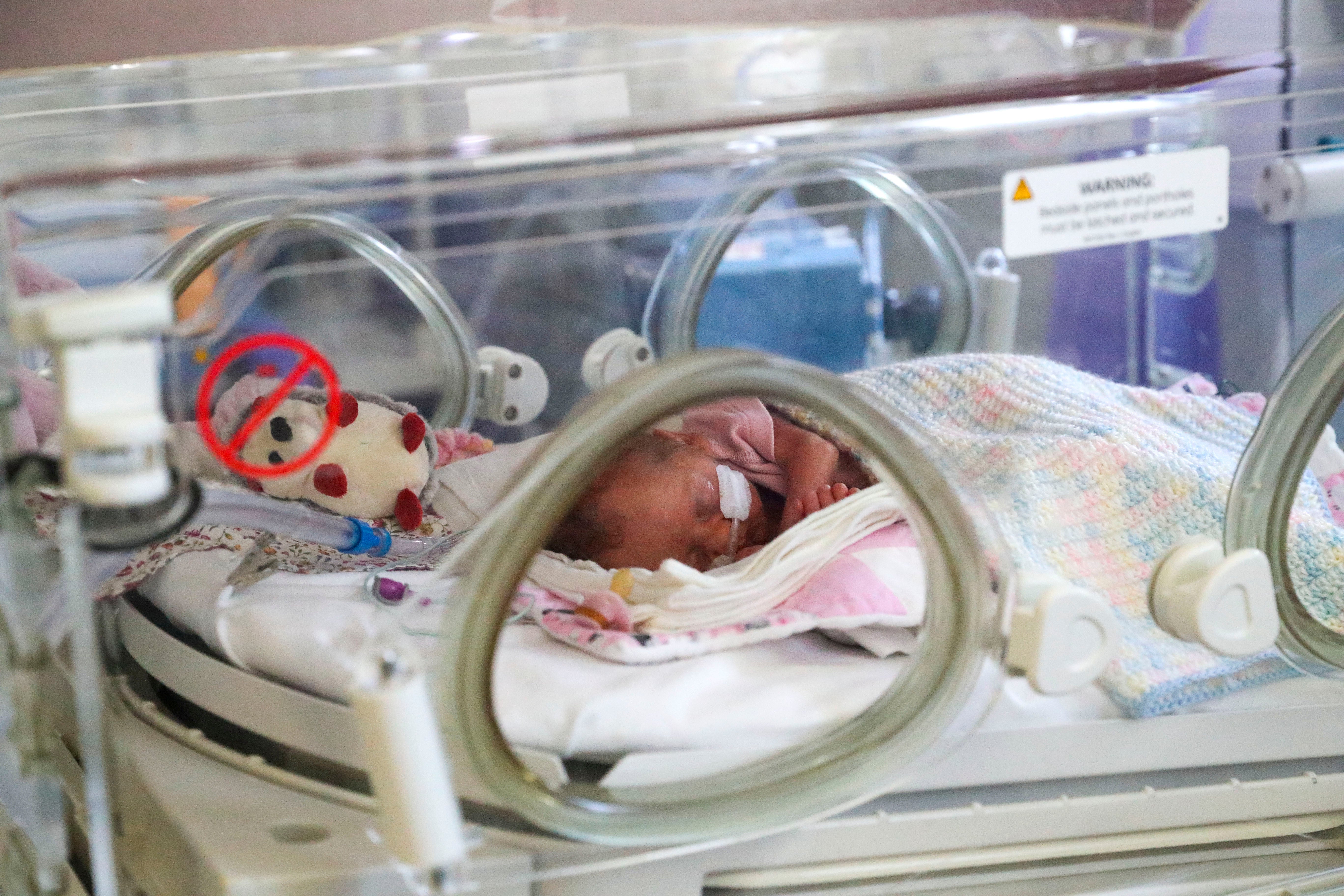Baby born into dangerously polluted air every 2 minutes in UK, study shows
Asthma UK and British Lung Foundation call on government to correct ‘national shame’

Your support helps us to tell the story
From reproductive rights to climate change to Big Tech, The Independent is on the ground when the story is developing. Whether it's investigating the financials of Elon Musk's pro-Trump PAC or producing our latest documentary, 'The A Word', which shines a light on the American women fighting for reproductive rights, we know how important it is to parse out the facts from the messaging.
At such a critical moment in US history, we need reporters on the ground. Your donation allows us to keep sending journalists to speak to both sides of the story.
The Independent is trusted by Americans across the entire political spectrum. And unlike many other quality news outlets, we choose not to lock Americans out of our reporting and analysis with paywalls. We believe quality journalism should be available to everyone, paid for by those who can afford it.
Your support makes all the difference.More than 250,000 babies were born in dangerously polluted parts of the UK in 2019, a study has discovered.
Asthma UK and the British Lung Foundation, the organisations which led the research, said the level of pollution was a “national shame” and called on the government to urgently reduce traffic fumes, the largest source of pollutants.
Their report found that every two minutes a baby takes its first breaths in a place where fine particulate matter (PM2.5) exceeded the World Health Organisation’s (WHO) 2005 recommended guidelines.
Almost a third of English hospitals are located in areas with bad air quality. It is not just large cities that fail to meet the WHO’s advice on PM 2.5 levels, but also smaller places like Windsor and Eton.
Given the WHO rules became tougher last month, up to 600,000 babies could be born in Britain into air deemed to be toxic over the next year, according to the researchers.
With the Cop26 climate summit due to be held in Glasgow next week, health campaigners said the British government should clean up its act.
Sarah Woolnough, who runs Asthma UK and the British Lung Foundation, branded it unacceptable that the country still had such high pollution levels.
“Every child deserves the best start in life and our government needs to act now to cut air pollution levels and do their duty to protect future generations from this invisible threat,” she said.
There is strong evidence to suggest that air pollution can stunt a child’s organs and can increase the likelihood of them developing asthma.
Julia Kovaliova, 37, a mother-of-three who lives in a polluted part of Manchester, has seen the consequences low-quality air has had on her eldest child, Maksim.
The 11-year-old developed pollution-induced asthma five years ago. “When we are away from home, such as on holiday or visiting family in Lithuania where there is much less traffic, his breathing problems miraculously disappear,” his mother said.
Ms Kovaliova is now concerned that Maksim’s asthma will worsen and that her daughter will also develop the lung condition. The family cannot afford to move to a different area, she added.
Andy Ratcliffe, a director at Impact on Urban Health, said the report showed maternity wards in poorer regions were more likely to have worse pollution. “This is an unacceptable example of inequality in action,” he said, calling for the government to tackle the issue as part of its “levelling up” agenda.
Toxic air is also estimated to cause 36,000 premature deaths in the UK every year. Last year, a landmark inquiry declared that air pollution played a “material contribution” in the death of nine-year-old Ella Adoo-Kissi-Debrah in 2013.
Writing in The Independent, Munira Wilson, a Lib Dem MP, recently backed the campaign for “Ella’s Law”, which seeks to introduce legal air pollution limits in Britain in line with WHO guidance.
Join our commenting forum
Join thought-provoking conversations, follow other Independent readers and see their replies
Comments